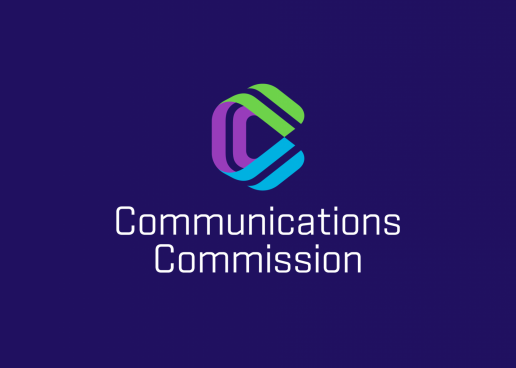Communications Commission to rule next week on whether the Mtavari Arkhi report contained obscenity, and whether the law was violated

The Communications Commission has examined the report aired by Mtavari Arkhi on 12 December 2020 at 21:57 on the political show “Mtavari on Saturday.” The subject of the report was the first session of the Parliament following the 2020 parliamentary elections. The report included obscene remarks and a graphic image with unethical connotation.
It should be noted that programmes containing obscenity have been aired with an increasing frequency during the recent period. Results of pre-election media monitoring of the 2020 parliamentary elections showed that within the diverse media environment, broadcasting of obscenities that violate a person’s basic rights constitute a major problem. During today’s public hearing, the Communications Commission heard the arguments from the representative of Mtavari Arkhi, and will rule on the issue during the next meeting.
On 7 December 2020, the Communications Commission issued a statement on the subject of broadcasting obscenity, calling on broadcasters to comply with the legislation and refrain from airing programmes whose content violates a person’s dignity and fundamental rights. The Commission warned broadcasters that it was willing to act within the scope of its legislative powers to protect the public from damage caused by programmes that violate dignity and fundamental rights.
Article 56.4 of the Law of Georgia on Broadcasting prohibits broadcasting of programmes or advertisements that abuse the dignity and fundamental rights of citizens and contain obscenity. On its part, the Communications Commission is authorised to respond to the aforementioned violations in accordance with Article 70.1 of the same law. The Law of Georgia on Broadcasting describes obscenity as an action which is in conflict with ethical norms established in society and which has no social and political, cultural, educational or scientific value.
It is important to note that based on the 2009 judgment of the Constitutional Court, the Communications Commission is obliged to examine and respond to the broadcasting of programmes containing obscenities that violate a person’s dignity and fundamental rights. The judgment states that “freedom of expression can be restricted when the expression crosses the line between freedom of expression and violation of other human rights. Therefore, the legislation must ensure that the rights violated by the broadcaster can be restored and the damage to viewers can be compensated.”
This is not the first time that the Communications Commission has had to rule on the issue of programmes containing unethical language. On 31 December 2020, the Commission studied a complaint concerning the TV show “Chemi Tsolis Dakalebi” (My Wife’s Friends), which was aired by TV Formula every day between 12:30 and 14:00, with most episodes containing coarse language and insults. Having studied the relevant international practice, the Commission ruled that in the given case, the use of insulting remarks was conditioned by the specific character of the TV show and had an artistic value, which formed the basis for justifying the use of the aforementioned terminology. However, in accordance with the legislative requirements, the Commission ruled that the insulting remarks used in the show, even when justified by the context, were unsuitable for minors, and that the broadcaster had a duty to air them during a time slot and with an age restriction label that are in line with the Law of Georgia on Broadcasting.
There are numerous international examples and practices concerning dissemination of insulting and obscene remarks by the media. In determining the standards for freedom of expression, the European Court of Human Rights attaches great importance to the medium of disseminating ideas and information. The Court pays particular attention to the fact that radio and television, as sources of entertainment and obtaining information in an intimate family environment, have an immediate, invasive and powerful social impact (Jersild v. Denmark, no. 15890/89, § 31, Murphy v. Ireland, no. 44179/98, §§ 69, 74; Animal Defenders International v. UK, [GC], no. 48876/08, § 119, Centro Europa 7 S.r.l. and Di Stefano v. Italy, [GC], no. 38433/09, § 132). Therefore, due to the nature of audio-visual media, the assessment of broadcasted content must take into account the rights and legal interests of the audience. The immediate, invasive and powerful impact and protecting the rights of the audience form the basis for the need to regulate broadcasting.
There are numerous examples in international practice concerning the regulation of obscenity in audio-visual media.
It would be worthwhile to look at the practice of the UK regulatory body Ofcom in this field. For example, it ruled that one of the radio stations violated broadcasting standards by playing the song “Creep” by the famous band Radiohead. Ofcom ruled that airing a song that repeatedly used a swear word was not justified by context. It is worth noting that in the given case, the regulator did not assess the cultural value of the song. Ofcom ruled on whether there was a need for the use of offensive language, and whether it was justified by context (Ofcom Broadcast and On Demand Bulletin Issue Number 393, 9-10).
Equally interesting was Ofcom’s ruling in a case where a broadcaster was found to have violated ethical norms when one of its journalists abused a politician live on air. The regulator’s decision was upheld by the national courts, while the European Court of Human Rights in Strasbourg ruled that the journalist’s appeal was inadmissible (Gaunt v UK, no. 26448/12).
The broadcasting of obscenity is also strictly regulated in the United States. The Federal Communications Commission (FCC) has made numerous important decisions in this regard. For example, FCC ruled that a broadcaster violated the legislation by showing the humorous monologue “Seven Dirty Words” by the famous comedian George Carlin live on air. Although the monologue had an overall cultural and humorous value, the regulator deemed the use of offensive terms not to be justified by the context. Notably, FCC’s decision was upheld by the United States Supreme Court. This judgment is still regarded as a precedent today (FCC v. Pacifica Foundation, 438 U.S. 726 (1978).
The Commission will announce its decision in one week. Due to the importance of the issue, the Commission believes that the decision must be taken in a transparent manner, following a discussion involving all stakeholders.










